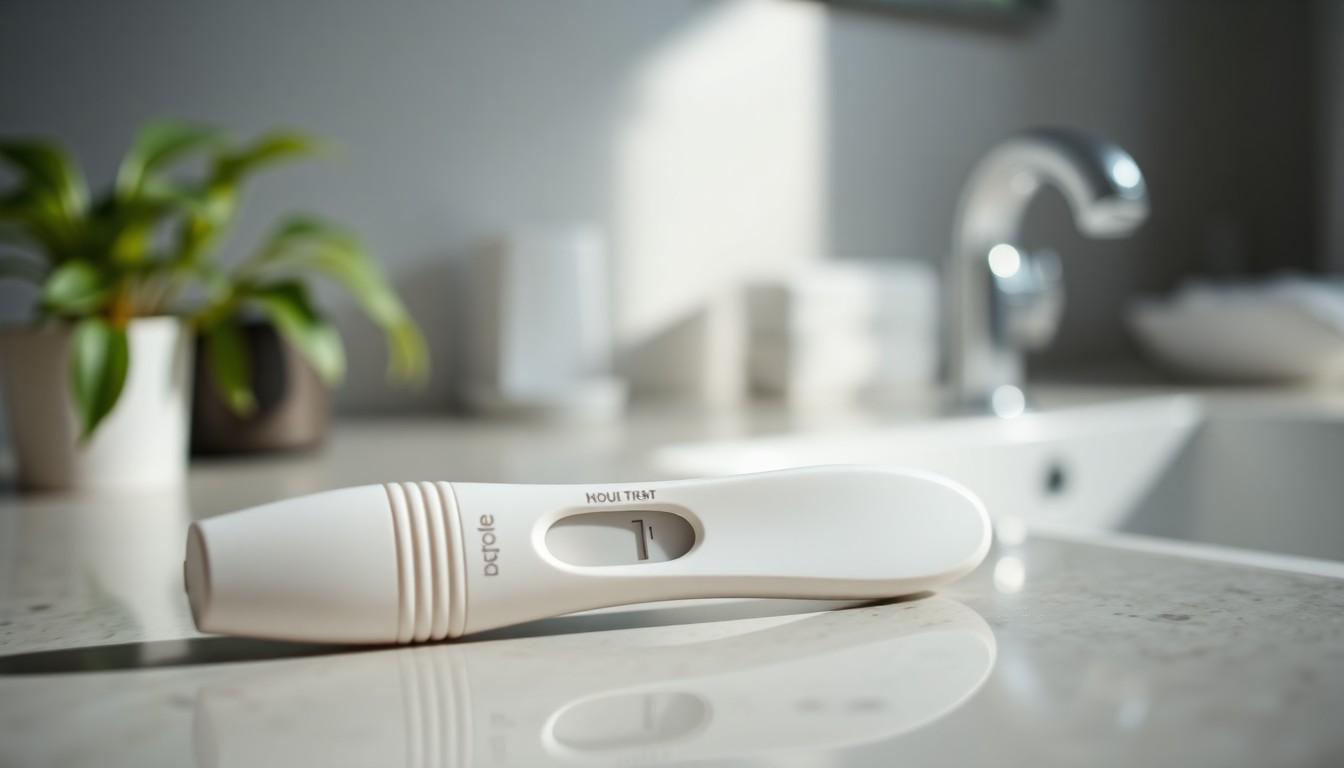Waiting for a missed period can feel like an eternity, especially when a pregnancy test gives a negative result. Nine days late? That’s a rollercoaster ride of emotions, with hope and anxiety battling for the top spot. She’s not just late; she’s on a suspenseful journey that rivals any cliffhanger in a soap opera.
Table of Contents
ToggleUnderstanding the 9 Days Late Negative Pregnancy Test
A negative pregnancy test despite being nine days late can lead to confusion and frustration. It raises many questions about potential causes and implications for one’s health.
What Does a Negative Pregnancy Test Mean?
A negative pregnancy test indicates that there isn’t enough human chorionic gonadotropin (hCG) in the body to detect pregnancy. Testing positive relies on the hormone levels rising post-implantation. Factors like testing too early can lead to misleading results. In such cases, a follow-up test a few days later often provides clarity. Tracking menstrual cycles also helps understand fertility windows better.
Common Reasons for a Negative Result
Several factors contribute to a negative pregnancy test despite a missed period. Stress affects hormonal balance and can delay ovulation or periods. Irregular menstrual cycles may cause confusion with timing. Certain medical conditions, such as polycystic ovary syndrome (PCOS), play a significant role in menstrual irregularities. Medications and birth control methods can influence test outcomes, leading to unexpected results. Lastly, a faulty test can yield inaccurate results; it’s crucial to check expiration dates and follow instructions accurately.
Factors Affecting Pregnancy Test Accuracy

A variety of factors can significantly influence the accuracy of pregnancy tests. Understanding these elements helps clarify why a negative result may arise even when periods are late.
Timing of the Test
Testing too early often leads to negative results. Many home pregnancy tests advise using them after a missed period for the most accurate outcome. The presence of the hormone hCG builds up in the body after implantation, typically occurring around six to twelve days post-ovulation. Taking a test prior to that can miss the hormone’s detection. If an individual has irregular cycles, pinpointing ovulation can be complicated, further delaying accurate results.
Sensitivity of the Test
Different brands of tests feature varying sensitivities to hCG levels. Some tests can detect hCG at lower concentrations, while others require higher levels for accurate results. Tests labeled as ‘early detection’ generally provide more reliable readings sooner. If an individual uses a less sensitive test, a negative result may occur even in cases of early pregnancy. Reading the product details on sensitivity ensures a more informed choice about which test to use.
Potential Causes for a Missed Period
Several factors can contribute to a missed period, especially when someone experiences a delay of nine days with a negative pregnancy test.
Stress and Lifestyle Changes
Stress significantly affects menstrual cycles. High stress levels can disrupt hormonal functions, causing delays. Lifestyle changes also play a role. Sudden weight loss, weight gain, or changes in exercise routines can impact hormonal balance. Additionally, travel or changes in routine can lead to irregular cycles. Much depends on how the body responds to these external pressures. Maintaining a stable routine helps many women manage their cycles more effectively.
Hormonal Imbalances
Hormonal imbalances affect menstrual regularity. Conditions such as polycystic ovary syndrome (PCOS) can lead to missed periods. Thyroid disorders also cause irregularities in the menstrual cycle. Similarly, fluctuations in estrogen and progesterone levels disrupt the normal cycle. Birth control methods may alter hormone levels, causing changes in menstruation. Monitoring symptoms and consulting a healthcare provider can help identify and address these imbalances.
When to Seek Medical Advice
Seeking medical advice becomes essential if a person is nine days late with a negative pregnancy test. Consulting a healthcare provider can help identify underlying issues and provide clarity.
Importance of Follow-Up Testing
Follow-up testing plays a crucial role in this situation. A person may benefit from retesting a few days later to confirm results, especially if testing occurred too early. Testing again increases the chances of detecting rising hCG levels, which may indicate pregnancy. Confirming the time elapsed since the last menstrual period provides more context. Knowing the test’s sensitivity can also influence results, with early detection brands often yielding more reliable outcomes.
Potential Conditions to Consider
Several potential conditions could explain a missed period alongside a negative pregnancy test. Hormonal imbalances such as polycystic ovary syndrome (PCOS) significantly affect menstrual regularity. Thyroid disorders can also contribute to irregular cycles, causing delays. Stress-related factors may disrupt hormonal balance, impacting menstrual timing. Injuries or sudden lifestyle changes, including weight fluctuations, may lead to missed periods as well. Monitoring symptoms helps in discussing these potential conditions with healthcare providers for better diagnosis and treatment.
Navigating the emotional landscape of being nine days late with a negative pregnancy test can be overwhelming. It’s vital to remember that various factors can contribute to this situation, from hormonal imbalances to lifestyle changes.
Taking a proactive approach by monitoring menstrual cycles and understanding the nuances of pregnancy testing can empower individuals. Consulting with a healthcare provider can provide clarity and guidance, ensuring that any underlying issues are addressed.
Ultimately, staying informed and seeking support can help manage the uncertainty and anxiety that often accompanies this experience.


